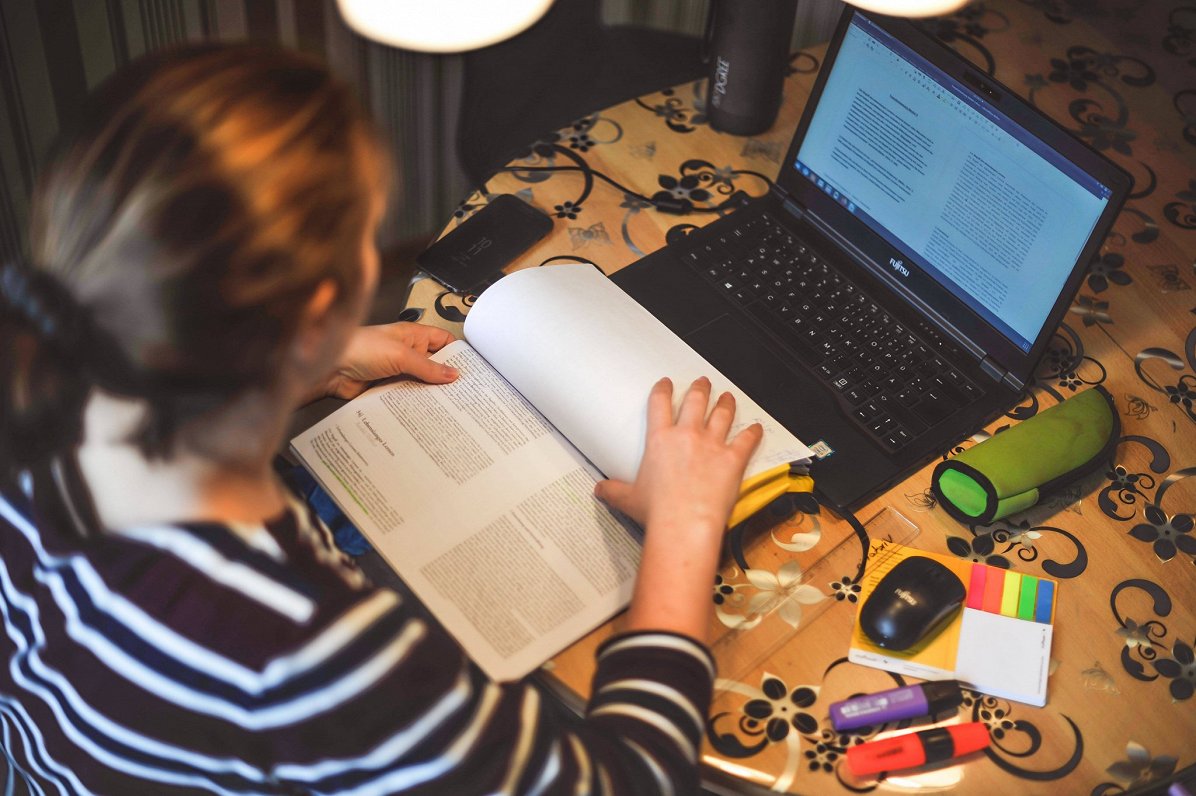Grades 7 to 12 are currently studying remotely. The Ministry of Education has concluded a computer procurement a couple of weeks ago, but does not yet say when the technologies could arrive to schools and pupils. In the meantime, local governments predict that the problems of technology will not be resolved.
“A schoolgirl is in grade 9 and she only has a cellphone. The family is watched by social services. I ask her why she doesn't access learning and doesn't do tasks. She says there is no such opportunity, she can't connect remotely, nor can she send homework from her phone.
I also talked to the parents, who acknowledged that they didn't have the option to buy a computer or tablet and provide a connection. This is the technical capacity of this family,” said Antra Jansone, social service specialist at Saldus municipality.
She highlights the problem of remote learning: although technological provision has improved since the spring, there are still families who have no access or insufficient access.
Similar problems were also confirmed by Silvija Strankale, head of the social service of Rēzekne municipality.
“It is fair to say that the material situation for these families has not improved since the previous emergency. It is true that remote learning are currently taking place for grades 7 to 12, and young children are at school, which undermines the load and the need for devices.
But in general, of course, it is not enough for all children,” Strankale said.
Ināra Dundure, education specialist for the LPS, explained that, in general, many families and schools still have problems with a stable Internet connection, as well as with hardware provision.
“Survey shows that close to 19% of pupils have insufficient Internet speed, while 21% have insufficient technology provision. Similarly, 11% of teachers are in difficulty. This digital divide in COVID-19 conditions is getting bigger. In particular, access to education is increasing for higher-income families.
On the other hand, for families who do not have these technologies, it is declining. This will result in real segregation of pupils and, ultimately, society,” Dundure predicted.
There must be a national solution in Dundure's view, but it is currently not the case and has been put on the shoulders of municipalities.
In September, the government allocated €3.9 million to the Ministry of Education and Science to improve technological security for schools. More than 400 schools are scheduled to receive computers by the end of this year. Meanwhile, the LPS is currently conducting a detailed survey on technological security needs in families and schools.



























